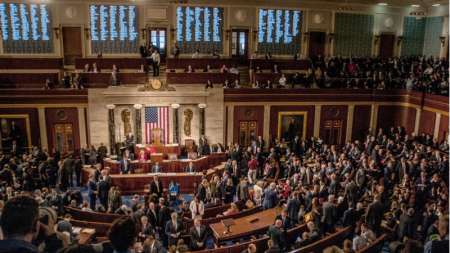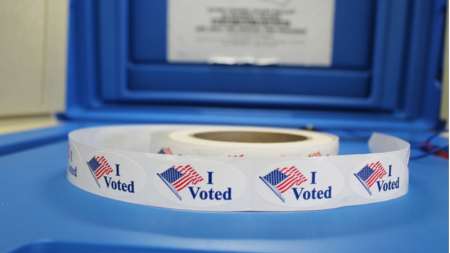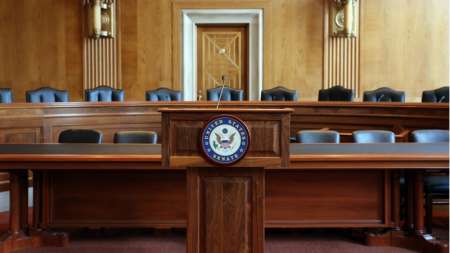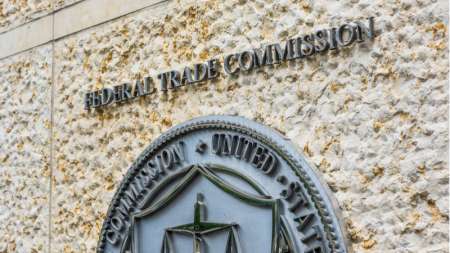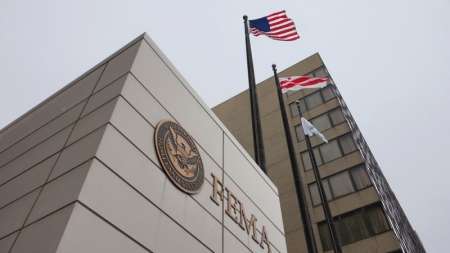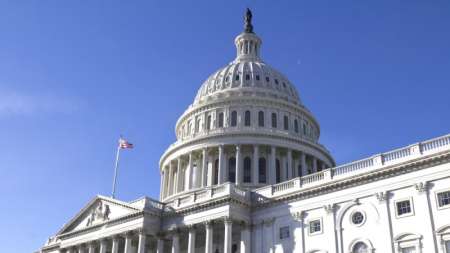Sens. Gary Peters, D-Mich., Debbie Stabenow, D-Mich., Kirsten Gillibrand, D-N.Y., and Catherine Cortez Masto, D-Nev., have introduced new legislation to aid workers who lose their jobs to automation. […]
Rep. Robin Kelly, D-Ill., introduced legislation on Dec. 10 that would provide $40 million in grants for state and local governments to purchase gunfire detection technologies. […]
On Dec. 6, Rep. Chrissy Houlahan, D-Penn., introduced H.R. 5353, which will establish a policy that promotes and maintains “digital and software development expertise” in the Defense Department’s (DoD) workforce. […]
At a Brookings Institution event on Dec. 5, Sens. Chris Coons, D-Del., and Mike Lee, R-Utah., made the case for their Facial Recognition Technology Warrant Act. […]
Sens. Cory Booker, D-N.J., and Ron Wyden, D-Ore., called on the Federal Trade Commission (FTC), the Centers for Medicare and Medicaid Services (CMS), and five major healthcare companies to “provide more information on how they are addressing bias in algorithms used in many healthcare systems.” […]
A bill introduced last week by Rep. Grace Meng, D-N.Y., would direct that the Federal government spend $100 million per year for five years on a program to provide mobile broadband “hotspot” devices to schools and libraries. […]
Democratic members of the Senate Commerce, Science, and Transportation Committee led by Ranking Member Maria Cantwell, D-Wash., unveiled Federal data privacy legislation that aims to establish data privacy rights, outlaw harmful and deceptive practices by information service providers, and improve data security safeguards for online consumers. […]
The Congressional Budget Office estimated in a Nov. 21 report that the DOTGOV Online Trust in Government Act would cost very little to implement. […]
According to a Congressional Budget Office (CBO) report released Nov. 21, the Advancing Cybersecurity Diagnostics and Mitigation Act, H.R. 4237, would cost less than $500,000 to implement over the next five years if the legislation becomes law. […]
A bipartisan bill to develop a next-generation mobile communications strategy cleared the House Committee on Energy and Commerce (E&C) via a voice vote on Nov. 20. […]
The Network Security Information Sharing Act of 2019 cleared the House Energy and Commerce Committee via a voice vote on Nov. 20. […]
The House Energy and Commerce Committee (E&C) voted on Nov. 20 to approve the Broadband Deployment Accuracy and Technological Availability Act (Broadband DATA Act). […]
Leaders of several Senate committees with national security jurisdiction are urging Robert O’Brien, President Trump’s National Security Adviser, to appoint a single Federal policy coordinator for telecommunications policy with a particular focus on 5G wireless technologies. […]
The House will vote today on a continuing budget (CR) resolution that will fund Federal government operations through Dec. 20, pay for a 3.1 percent annual pay raise for military personnel, and provide funding to the Department of Commerce for 2020 Census work. […]
Reps. Ken Buck, R-Colo., and Ro Khanna, D-Calif., introduced a bill on Nov. 15 that would require all Foreign Agents Registration Act (FARA) files to be submitted to the Department of Justice (DOJ) in a digital, searchable electronic format. […]
The House Science Committee voted to approve H.R. 4990, the Election Technology Research Act of 2019, on Nov. 14. […]
Sens. Chris Coons, D-Del., and Mike Lee, R-Utah, introduced a bill that would require Federal law enforcement to obtain a court-ordered warrant before using facial recognition to surveil the public on Nov. 14. […]
The Senate Commerce, Science, and Transportation Committee approved by voice vote today the Harvesting American Cybersecurity Knowledge through Education Act (HACKED Act) (S 2775), which aims to boost the Federal cybersecurity workforce with new guidelines for agencies, clearer career paths for the workforce, and improved coordination between agencies. […]
The Government Accountability Office (GAO) released a report on Nov. 8 providing updates and recommendations on the Digital Accountability and Transparency Act of 2014 (DATA Act). The report offered two recommendations for the Treasury Department. […]
The Department of Energy (DOE) supports legislative efforts in Congress to fund more investment in power grid cybersecurity nationwide, DOE Assistant Secretary Daniel Simmons testified at a Nov. 6 Senate Subcommittee on Energy hearing about current legislation. […]
A new bill backed by a bipartisan group of leaders on the Senate Commerce, Science, and Transportation Committee aims to boost the Federal cybersecurity workforce with new guidelines for agencies, clearer career paths for the workforce, and improved coordination between agencies. […]
A bill introduced in the House by Reps. Anna Eshoo, D-Calif., and Zoe Lofgren, D-Calif., on Nov. 5 – the Online Privacy Act of 2019 – would create new user private rights, place the onus on companies to protect user data they collect, and establish a new Federal agency to “enforce privacy protections, and strengthens enforcement of privacy law violations.” […]
The National Association of State Chief Information Officers (NASCIO) endorsed S.?2749, the?DOTGOV?Act of 2019 on Nov. 4. The legislation, introduced by Sens. Gary Peters, D-Mich., and Ron Johnson, R-Wis., ranking member and chairman of the Senate Homeland Security and Governmental Affairs Committee, respectively, and Sens. Amy Klobuchar, D-Minn., and James Lankford, Okla., aims to “strengthen local government cybersecurity defenses by switching to the .gov domain for websites and email addresses.” […]
The Congressional Budget Office (CBO) reported on Oct. 31 that the Energy Cybersecurity Act of 2019 would cost $832 million to implement over the next 10 years, with $355 million of that spent during the first five years. […]
Several senators introduced legislation on Oct. 30 that aims to “strengthen local government cybersecurity defenses by switching to the .gov domain for websites and email addresses.” […]
Two Federal Trade Commissioners – one a Republican and the other a Democrat – agreed on Oct. 28 that the agency has the tricky task of balancing both consumer data privacy and business interests, and must find that balance even as the fast pace of technological advancement makes the value of prescriptive regulation uncertain. […]
A bill reintroduced in the Senate Oct. 24 aims to increase the reach of emergency alert communications on national and state levels by preventing some alert opt-outs on mobile phones, requiring that alerts issued by the White House or the Federal Emergency Management Agency (FEMA) be run repeatedly by television and radio stations, and exploring how to create a system to offer emergency alerts on audio and video online streaming services. […]
The Advancing Cybersecurity Diagnostics and Mitigation Act, H.R. 4237, was unanimously approved by the House Homeland Security Committee on Oct. 23. […]
Sen. Edward Markey, D-Mass., and Rep. Ted Lieu, D-Calif., on Oct. 22 reintroduced legislation in the Senate and House aimed at creating a voluntary system to certify cybersecurity protections for internet of things (IoT) devices. […]
Reps. Robin Kelly, D-Ill., and Cathy McMorris, R-Wash., introduced the US SAFE WEB Extension Act on Oct. 22, which would enable the Federal Trade Commission (FTC) to protect Americans from fraud, spam, and deception online. […]













